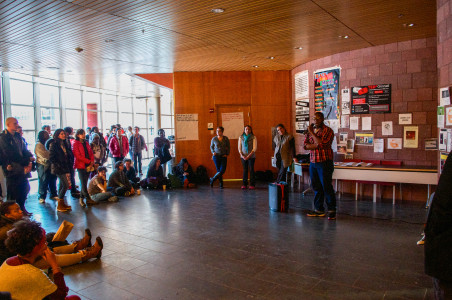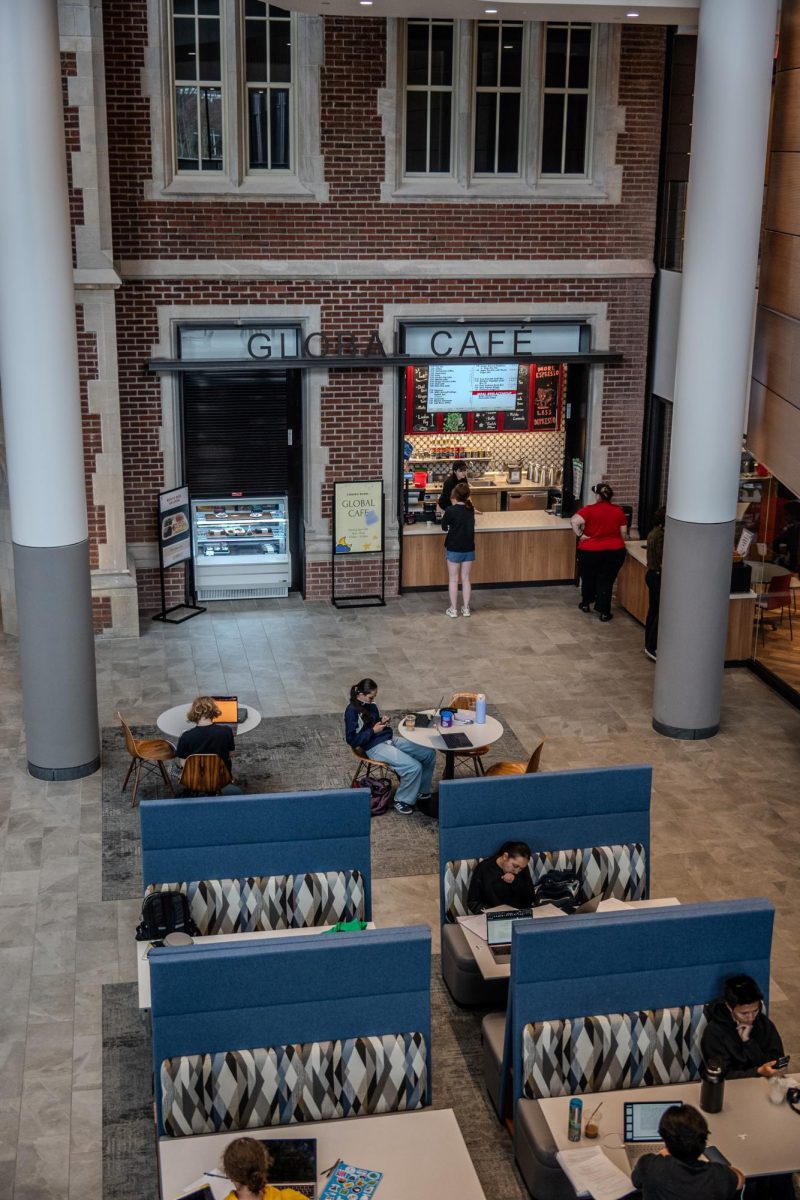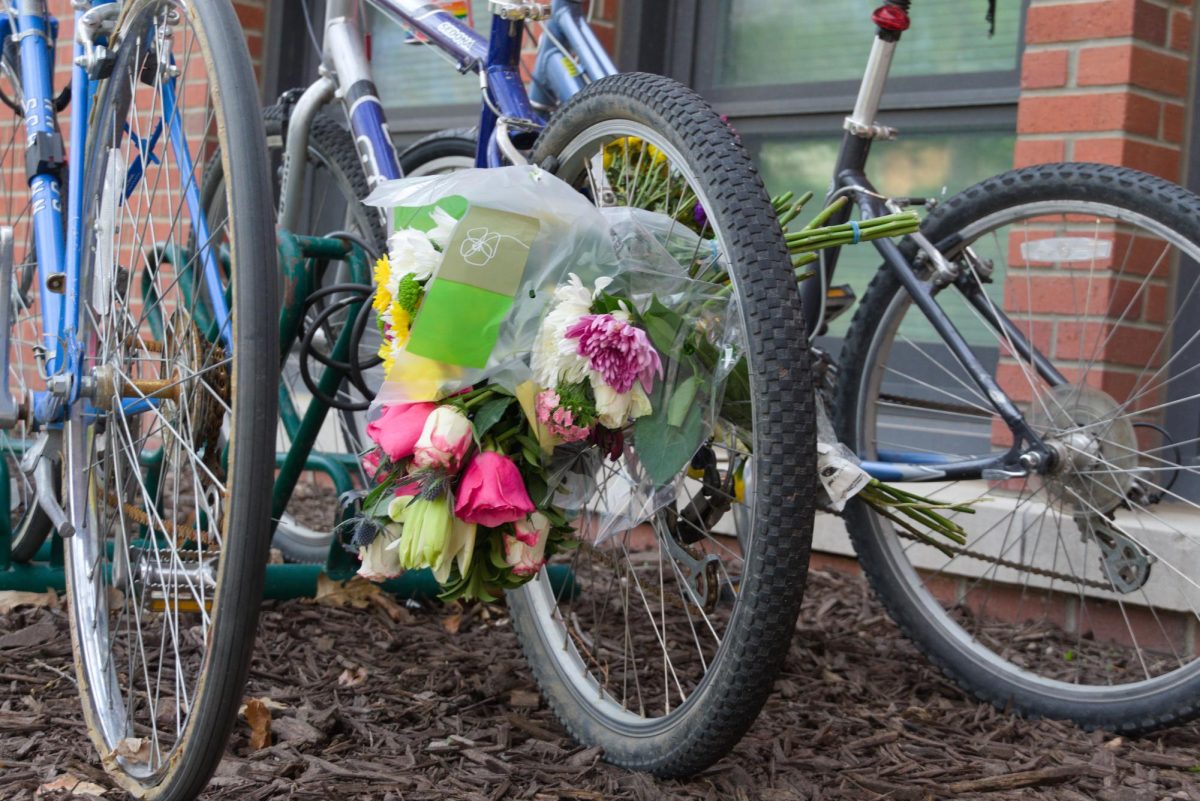The One Grinnell Solidarity Rally on Wednesday, Feb. 4 began with a speech by the group’s co-founder Eric Brito ’16, who stood before faculty, staff, community members and other students in the lobby of the JRC as he traced his experiences as a first-generation student at Grinnell. The group gathered for the rally to join Brito and Jason Camey ’16, co-leaders of One Grinnell, and to stand in solidarity with students of color and other minority groups on campus.

Photo by Jeff Li.
“I’m a third-year right now, but I’m not happy with the way Grinnell was presented to me. Grinnell hasn’t kept up its end of the agreement. One of the issues we need to face right now is that this city is really divided right now,” Brito said during his introductory remarks.
An email invitation issued by Brito explained the purpose of the gathering. “At this rally we will have students, faculty and staff sharing their experiences of inequality, discrimination and personal struggle on and off campus. We want our audience and speakers to represent a range of diversity including, race, class, sexuality, religion and position within the Grinnell community,” Brito wrote.
One Grinnell first came about when Brito and Camey raised complaints concerning a perceived lack of safe spaces provided by the College for students of color and minority group students, as well as the number of racially charged incidents that have occurred on campus throughout the past year.
“The inception of [One Grinnell] came about last year when certain actions escalated. Those actions were usually people from the town driving by the campus yelling racial slurs at students. There was also a lot of men, middle-aged men, who would come and harass our female peers, so that was beginning to push it even more,” Camey explained.
He also stated that someone who he believes is a member of the campus community drew a swastika in the suite dedicated to the Jewish community on campus. At that point, Camey and his peers were offended and wanted solidarity to do something.
“We also wanted to make everyone aware of what was happening on campus,” Camey said. “I was working at the Office of Intercultural Engagement and Leadership at the time and Narren [Brown, Director of Intercultural Strategic Analysis and Engagement] was … an early-on supporter of this.”
After a successful last rally in December 2013, Brito and Camey felt compelled to lead a new rally with the intent of fostering a safe environment in which to discuss pertinent intersectional issues.
“The mayor was there [at the last rally], the police chief was there, Raynard Kington, who previously did not want us [One Grinnell] to go through with [the last rally], was there,” Camey said.
After several invited speakers, including Maria Tapias, Senior Advisor to the President for Diversity, and Stephanie Snow ’03, Interim Assistant Director of Intercultural Engagement and Leadership, gave their own perspectives on the issue at hand, other Grinnell students shared personal narratives concerning the way that they felt the College handled, or did not handle, several intersectional identity issues.
Additionally, Camey stated that one of his goals for One Grinnell was to implement a center in which students could feel safe and could feel a sense of belonging. Brito pinpointed this goal and expressed his frustration regarding the lack of a center as a more expansive safe space throughout his speech at the rally.
“I’m tired of just having the one room on the second floor of the JRC where I can feel safe,” Brito said, referring to the Office of Intercultural Engagement.























































Grin alum • Feb 6, 2015 at 10:57 am
All Grinnell students, at least while on campus, are incredibly privileged. The campus resembles an upscale and exclusive country club with plush athletic facilities and all manner of blandishments. So the narrative of victimization and struggle described here is absurd. Students who are truly concerned about “inequality” should get out of their cocoon and work with the town and surrounding communities to address the poverty and structural inequities in the County. Doing that hard work, rather than objectifying those less fortunate as bigoted “townies,” would be the biggest step the campus community could take to realizing One Grinnell.